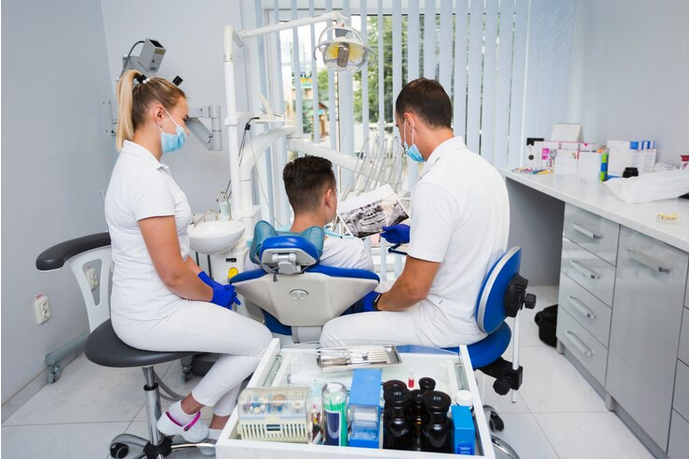Introduction:
The landscape of dentistry is evolving rapidly, driven by changes in technology, patient expectations, and the healthcare industry as a whole. One significant development on the horizon is the rise of Dental Services Organization (DSOs), which are poised to play a pivotal role in the future of dentistry. In this article, we delve into the world of DSOs, examining their impact on the dental profession, patient care, and the broader healthcare ecosystem.
The Emergence of Dental Services Organizations (DSOs):
Dental Services Organizations, or DSOs, represent a relatively new approach to dental practice management. These organizations are typically structured to provide centralized support and resources to multiple dental practices and their affiliated dentists. DSOs aim to streamline administrative functions, enhance operational efficiency, and allow dentists to focus more on patient care.
Key Characteristics of Dental Services Organizations:
Administrative Support: One of the primary functions of DSOs is to handle the administrative aspects of dental practices. This includes billing, insurance claims, appointment scheduling, human resources, and compliance with regulatory requirements. By centralizing these functions, DSOs aim to reduce the administrative burden on individual dentists, allowing them to allocate more time to clinical activities.
Standardized Protocols: DSOs often implement standardized protocols and best practices across their affiliated practices. This consistency in treatment protocols and quality assurance measures can result in improved patient outcomes and a higher level of care.
Economies of Scale: DSOs can leverage economies of scale when it comes to purchasing dental supplies and equipment. This can lead to cost savings, which can be reinvested into enhancing patient care or expanding services.
Technology Integration: DSOs frequently invest in the latest dental technologies, such as digital imaging, electronic health records, and telehealth solutions. These technologies can improve diagnostic accuracy, treatment planning, and patient communication.
Professional Development: Many DSOs offer opportunities for continuing education and professional development to their affiliated dentists and staff. This ensures that practitioners stay up-to-date with the latest advancements in dentistry.
Impact on Dentists:
For individual dentists, affiliating with a DSO can bring about several advantages:
Reduced Administrative Burden: Dentists can offload time-consuming administrative tasks to the DSO, allowing them to focus on providing patient care.
Access to Resources: DSOs provide access to resources and support that may be beyond the reach of a solo practitioner. This includes marketing, legal assistance, compliance expertise, and financial management.
Technology Adoption: DSOs often invest in cutting-edge dental technologies, enabling affiliated dentists to offer state-of-the-art treatments to their patients without the financial burden of acquiring and maintaining such equipment.
Financial Stability: DSOs can provide a level of financial stability and security that may be elusive for some solo practitioners. This can be particularly attractive to recent dental school graduates burdened with student loan debt.
Impact on Patients:
Patients also stand to benefit from the emergence of DSOs in dentistry:
Enhanced Access: DSOs may expand access to dental care by opening new practices in underserved areas. This can help address the issue of dental deserts and ensure that more individuals have access to essential oral healthcare services.
Quality Assurance: DSOs often implement standardized quality assurance measures, ensuring that patients receive consistent and high-quality care across affiliated practices.
Technological Advancements: Patients can benefit from the integration of advanced technologies, which can lead to more accurate diagnoses, less invasive treatments, and improved overall experiences.
Expanded Services: DSOs may offer a broader range of dental services, including specialties like orthodontics, oral surgery, and pediatric dentistry, under one roof, providing patients with comprehensive care options.
Challenges and Concerns:
While the growth of DSOs in dentistry offers numerous advantages, it is not without its challenges and concerns:
Loss of Autonomy: Some dentists may be concerned that affiliating with a DSO could result in a loss of professional autonomy and decision-making authority.
Patient Relationships: Dentists who join DSOs must navigate the challenge of maintaining strong patient relationships in an environment where administrative processes may be more centralized.
Profit Motives: Critics argue that DSOs, like any corporate entity, may prioritize profit margins over patient care, potentially leading to over-treatment or other ethical concerns.
Regulatory Scrutiny: The rapid growth of DSOs has attracted regulatory scrutiny in some regions. Ensuring compliance with healthcare laws and regulations is essential to avoid legal complications.
Conclusion:
The future of dentistry is being shaped by the emergence of Dental Services Organizations (DSOs), which offer a novel approach to practice management and patient care. DSOs have the potential to streamline administrative processes, improve access to care, enhance treatment quality, and facilitate the adoption of advanced technologies.
For individual dentists, affiliating with a DSO can provide relief from administrative burdens, access to resources, and opportunities for professional growth. Patients, in turn, may benefit from increased access to dental care, standardized treatment protocols, and the integration of cutting-edge technologies.
However, the rise of DSOs also raises concerns about professional autonomy, patient relationships, profit motives, and regulatory compliance. Striking a balance between the benefits of DSOs and the preservation of ethical and patient-centered care will be crucial as the dental profession continues to evolve.
In the end, the future of dentistry, with DSOs playing a prominent role, is likely to be shaped by ongoing dialogue, adaptation, and a commitment to delivering the best possible care to patients while ensuring the continued professional growth and fulfillment of dentists.





Comments